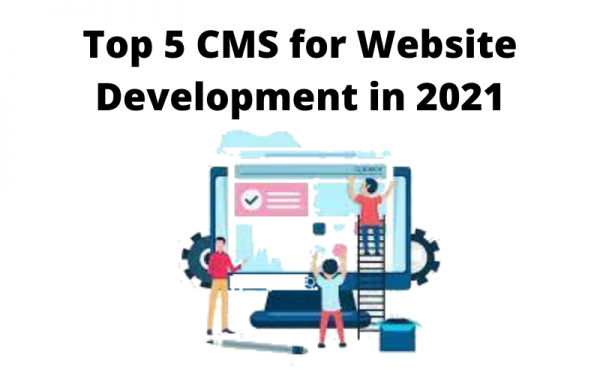The content management system provides website developers and non-developers an easy-to-manage, efficient and fast platform to create engaging web pages.
The content management system provides website developers and non-developers an easy-to-manage, efficient and fast platform to create engaging web pages. Such tools have grabbed the attention of those with creative minds but lack hands-on programming skills. It should not be confused with the fact that having programming skills will provide professionals with an advantage to alter features and functionalities.
Many confuse CMS with a platform to create blog-like websites but there are plenty of large-scale websites that have been developed using CMS.so, CMS Development Services is not restricted to small-scale websites and it is fully capable of handling high traffic loads and versatile user requirements. It depends on your budget and the type of CMS you are using.
On the basis of factors like data management, cloud storage, efficiency, and affordability, the below-mentioned are the top seven CMS one can try on in 2021.
- WordPress
It is the world’s most used CMS for website development. It covers 40% of all websites present on the internet. It has established as a common CMS used for general purpose applications like blogging. It has provided its user with a high-class platform to publish and alter digital content.
With an effective visual editor, website developers can review their website’s look in real-time. A large community is another advantage of using WordPress CMS. There are plenty of plugins available on WordPress which make it a highly flexible CMS to integrate third-party features.
- Drupal
Drupal might not be as convenient as WordPress or Joomla but it is no less efficient than either of the two of its main contenders in the market. Most of the users using Drupal prefer using it for its high-security settings and custom post creation & management.
Drupal engages in rich-scalability by allowing the inclusion of third-party tools enriching the functionality of web applications developed using the CMS. it considerably requires users to have experience in web development as Drupal has more technicalities than other CMSs.
- Joomla
Joomla is a popular yet more complex content management system. Its biggest contender is WordPress. However, it is considered flexible in terms of content publishing and management and many other aspects.
It is a compatible choice for websites with more graphical content than textual content. Joomla is a well-known versatile option for custom post generation. With such an approach, it becomes a popular CMS choice for those seeking to utilize a CMS with modest and custom development experience.
- Shopify
Shopify is a CMS dedicated to eCommerce website development. It is well-known for its features like an advanced extension of features through third-party integration. It provides users with large cloud-based data solutions to back their needs for a strong backup of data.
It provides advanced payment integration features that facilitate users to pay through a range of mediums including debit & credit cards. Alongside creating online stores, it provides developers a facility to create web applications for the in-store needs of the businesses.
- PrestaShop
PrestaShop is an open-source platform written in PHP for developing dedicated eCommerce web stores. The CMS utilizes MySQL for powering the database needs of web applications developed using PrestaShop. It is considered a considerably better eCommerce CMS for non-developers.
It has plenty of themes and templates helping users develop eCommerce stores faster and efficiently right from the scratch. However, it is criticized very often for its lack of free support.
Conclusion
For understanding how to choose the right CMS for your website, you can consider your requirements respective to the available resources. With such an approach, you can simplify the job of identifying the best out of the list smartly.
All the discussed CMSs in the blog post have gained a significant market share. Though there are other options such as CMS Hub, Magento Enterprise CMS, etc. these five have gained a large competitive advantage over other contenders.





